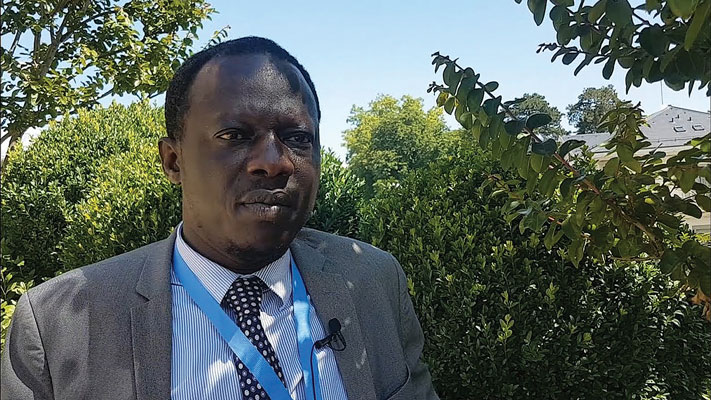
editorial desk
IN our NewsDay Weekender edition of Saturday we published on the same page two articles, one on the visiting United Nations (UN) special rapporteur on human rights, Clément Nyaletsossi Voule and another on United States ambassador to Zimbabwe Brian Nichols which, in our view, should nudge our government to come to terms with the glaring reality it is curiously refusing to see.
Voule said: “Albeit the common belief that a transformation will come, I believe that the long-awaited hopes are fading. The population is now questioning the government’s capacity to bring about such changes. They feel they have not experienced concrete and tangible results … I have perceived, from my different meetings around the country, that there is a serious deterioration of the political, economic and social environment since August 2018 resulting in fear, frustration and anxiety among a large number of Zimbabweans.
“Under international law, it is not enough for a government to say demonstrations pose a national security threat, a government has the obligation to identify the specific risks it is concerned about, the measures it will implement to mitigate such risks and the limited number of restrictions it will order to manage the risks. Blanket prohibitions are rarely lawful.
The role of the government is to mitigate risks to enable the enjoyment of the fundamental right to peaceful protest.”
And Nichols noted: “No, we are not under any pressure to lift sanctions. The biggest sanctions on Zimbabwe are the sanctions the country puts on itself, $3 billion unaccounted for spent in Command Agriculture and that money going into private companies that jerk up the exchange rate up to RTGS$27. So those types of problems, Zinara losing $25 billion unaccounted for and all its executives building luxurious homes, Zesa also and the list goes on and on. Those are the sanctions that the country puts on itself and that should be the focus of this government to remove those outdoor sanctions, those self-sanctions that the government of Zimbabwe puts on itself.”
Given these sentiments coming from the very people we want to befriend for the country’s future prosperity, it would be downright foolhardy for government to keep behaving like an ostrich which buries its head in the sand in the face of an approaching storm.
We sincerely believe the UN and the US are well-meaning in being open and telling us what we hate to hear.
- Chamisa under fire over US$120K donation
- Mavhunga puts DeMbare into Chibuku quarterfinals
- Pension funds bet on Cabora Bassa oilfields
- Councils defy govt fire tender directive
Keep Reading
The point we have reached as a nation calls for President Emmerson Mnangagwa and his administration to sober up, face reality and act audaciously.
This business of keeping on sweet-talking the world out there that things will work out when everything is pointing the opposite direction will not help them or us get anywhere.
Human rights abuses and downright corruption are just too glaring for Mnangagwa’s administration to hide its head in the sand.











